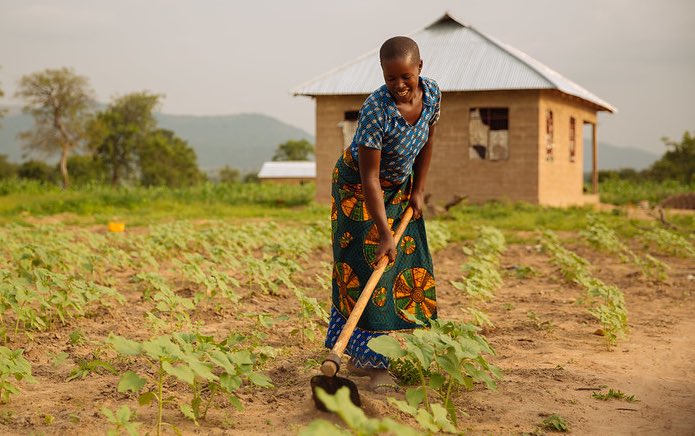While healthy soils play a critical role in supporting agricultural productivity, climate change mitigation and resilience, and a range of other ecosystem services and are thus an integral part of sustainable food systems, large swaths of African agricultural soils remain highly degraded. While there are hundreds of technical options for improving soil health, a myriad of sociocultural, institutional, economic, and policy barriers prevent their adoption at scale.
At the same time, there is an emerging consensus within the international development community that gender equality and women’s empowerment are both ends in themselves and an important means for achieving a range of economic and social development objectives such as improved food security, child nutrition and education, and women’s health.
However, the role of women’s empowerment in soil health is not yet well understood and also seldom recognized in interventions that aim to improve soil health and land management outcomes. A recent study supported by the CGIAR Research Program on Water, Land and Ecosystems reviewed relevant gender literature and developed a conceptual framework (Figure 1) to help illuminate important gender considerations for soil health and land management that could be key in supporting adoption of sustainable soil health management practices.
Source: Zhang et al. (2019)
Key insights that can be directly incorporated into improved soil health management include:
- The household is not always the appropriate unit of analysis for soil health management, as women and men might have different preferences and constraints to adopting technologies on the plots they manage.
- Gendered labor (human capital, including time use) and land tenure (natural capital) patterns play a central role in shaping soil management practices.
- Other identities besides gender, such as age and marital status, also influence how people interact with one another and their ability to make or influence decisions about soil management.
- Context, particularly structural conditions (including formal and informal institutions) influence the ways stakeholders interact with soil and the types of management strategies they use.
- Opportunity costs and trade-offs associated with soil health management can also differ for men and women.
These considerations are essential for identifying gender-based constraints, opportunities, and for avoiding unintended consequences when promoting soil management technologies.
Based on the framework, we propose several recommendations for setting priorities for gender-soil health research.
- All soil health management initiatives should consider gendered preferences and constraints.
- To better understand gendered differences, gender analysis and sex-disaggregated data need to be collected before, during, and after soil health interventions. This requires that agronomists and social sciences collaborate in data collection.
- A multi-pronged approach, which seeks to lift the multiple constraints that limit women’s adoption of soil enhancing practices and facilitates their capacity (and that of male farmers) to innovate in soil management is needed.
- Soil management initiatives must consider the potentially adverse effects of technologies on women’s time use and decision-making and actively prevent these.
Soil health outcomes and thus food system sustainability can be dramatically strengthened by better addressing gendered preferences and constraints.
Wei Zhang is a Senior Research Fellow with IFPRI’s Environment and Production Technology Division. This post first appeared on Agrilinks.







